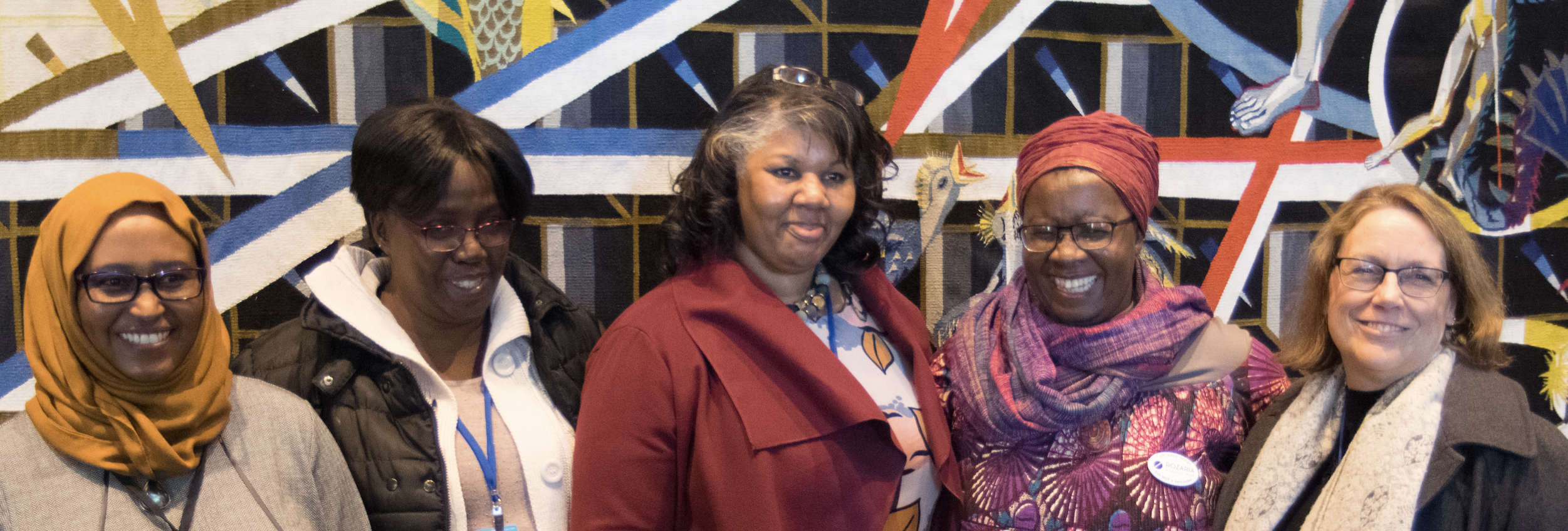
We spoke with Alison Kelly (UK) the ACT Alliance Representative to the United Nations, based in New York, and Dr. Marianna Leite (Brazil), ACT Alliance’s Global Advocacy and Development Policy Manager about their goals and hopes for ACT’s global advocacy work.
By engaging in effective advocacy at local, national, regional and global levels, ACT Alliance contributes to positive and sustainable change in the lives of people affected by poverty and injustice. ACT’s advocacy work is faith- and rights-based, grounded in evidence and rooted in the experience of forums and members.
Q: Why is advocacy important for ACT Alliance?

Marianna Leite (M): It’s our responsibility to fundamentally change how things are now and envisage a future where everyone and the planet thrives. Policy and advocacy are deeply connected to humanitarian and development work. There is also a theological aspect to it – really believing in our prophetic voice and raising a faith voice and the voices of the communities we serve.
Alison Kelly (A): There’s an increasing sense of urgency. With climate now being seen as an existential issue, there’s an urgency to advocate for transformational change.
M: We need to make some waves – positive waves of change. ACT has a role both in attending to urgent needs and striving for everyone to be able to enjoy basic rights in future.
A: Transformation also means switching our thinking. The economy is a human system that should work for people and the planet. Our advocacy strategy is solutions focused. That’s really important. We know what works from our members’ experience in their communities.
M: And we are all advocates. We all try to influence each other; it’s part of being human. One of the things we say in the ACT Advocacy Academy is that advocacy can be as big as your creativity can reach.
A: It’s opening the discussion. Advocacy can be local, it can be behind the scenes, it can be private; there are all these different mechanisms.
M: Informal and silent advocacy can be much more impactful than any visible external advocacy. It is crucial for members to consider when to say yes or no to advocacy and to do a risk analysis.
Q: What are the challenges and opportunities facing ACT’s global advocacy programme?
M: A major challenge is the toxic anti-NGO or anti-civil action narrative that now permeates society. Governments are cutting funding for the lifesaving work we do. The same negative undertone comes from fundamentalist groups that are backtracking hard won human rights. It’s hard to avert more damage because a narrative has a life of its own. Yet this is also an opportunity for ACT. We are a faith actor promoting human rights as part of a transformative approach to sustainable development. We can push back against the pushbacks. ACT is unapologetic about our support to International Human Rights Law, International Humanitarian Law, and their principles.
A: We speak to the moral and ethical dimension of issues, and we have the technical expertise to be credible. Holding faith and rights together gives us a strong platform.
M: How to maintain hope is also part of our role as faith actors. We can hope for a better future, and we can be the change that we want to see in the world. I see that as part of ACT being prophetic.
Recent global advocacy initiatives
Addressing COVID vaccine inequity
By early 2022, it was clear that global COVID-19 vaccine distribution was not as rapid as the virus’ mutation and spread. Most doses of the vaccines were acquired by and administered in developed countries. The most vulnerable people, especially in developing nations, were yet again left behind.
ACT responded by continuing to advocate for vaccine equity and addressing vaccine hesitancy. We published resources and hosted regional workshops on Vaccine Equity and Hesitancy in the Africa and Asia Pacific regions. ACT called on governments to support the creation of a binding treaty on pandemic preparedness. ACT’s General Secretary, as a civil society representative to the COVAX facility, pushed funders to make sure that vaccines reach those in developing nations.
New Advocacy Package
Developed over three years with ACT’s advocacy and policy reference group, an approvals process for all documents produced under the ACT banner was piloted in 2022. Created for forums and all groups of ACT Alliance members that want to do joint advocacy, it is part of a new advocacy package meant to ensure that ACT always speaks with one united voice with coherent and mutually reinforcing language. Member suggestions led to adjustments and user-friendly resources and design templates along with a forum-centred advocacy guidance, all part of the final package to be launched in 2023.
This interview appears in the ACT Alliance Annual Report 2022, available in English, French and Spanish.